Collectively, allied health professionals (AHPs) are the third largest clinical workforce in the NHS and at CCS we have 300 AHPs comprising dietitians, occupational therapists, orthoptists, physiotherapists, a podiatrist, orthoptists, and speech and language therapists.
Read the profiles below and discover what inspired some our AHPs to do their role, the main skills needed, the steps they took since leaving school to embark on their career, the highlights and challenges, what a typical day involves and their advice for anyone looking to follow in their footsteps.
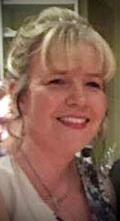
“Some highlights of my career so far include supporting patients in end-of-life care, working with whole families following a person’s brain injury, providing person-centred care for people with dementia and helping a lady get home following a stroke.
“My advice for anyone considering a career as an occupational therapist is to go and speak to a few OTs to hear from them what the job is like. Seek work experience/volunteering opportunities and apply to work as or alongside an OT in a support worker role. There are fantastic apprenticeship opportunities out there. Do it! After 26 years, I still love being an OT!”
Claire D'Agostino Assistant Director of Allied Health Professionals (Read Claire's profile here)
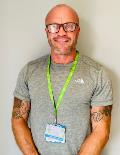
"Selling fruit and veg for a living and leading a very active lifestyle inspired me to learn more about nutrition which led to a career in dietetics. I did an access course in science before being accepted to take a 4-year degree in nutrition and dietetics at King’s College London. Since qualifying from King’s College London and working for the NHS for several years, I’ve done a part time master’s degree in paediatric diabetes to further my expertise in my current role.
“You’ll never be rich pursuing this career, but you’ll definitely make a difference, get job satisfaction, have fantastic career benefits and a good work/life balance!”
Gary Davidson, Advanced Paediatric Diabetes Dietitian and Team Lead (Read Gary's profile here)

“I’ve been a rehabilitation technician with the Acquired Brain Injury Service for 18 years and my role involves helping patients structure their week, supporting with paperwork such as appointment letters, teaching new skills which enable them to be more independent, helping them explore new opportunities and groups, helping them apply for benefits, as well as liaising with GPs, social workers, care agencies, and supporting with fatigue and anxiety management.
“The highlight of my career is seeing patients get back to some sort of normality, even return to work, or start a new venture in their lives.”
Jeannette Elliott, Rehabilitation Technician, Acquired Brain Injury Service (Read Jeannette's profile here)
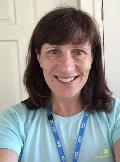
“I was inspired to become a speech and language therapist (SLT) when I observed an assessment and therapy being carried out on a lady who had suffered a stroke and couldn’t communicate in the way she used to. I knew then that I wanted to help others achieve their potential and make a difference to their lives.
“I’ve been a SLT for 20 years now and just knowing I can impact the quality of someone’s life is so rewarding.”
Clare Slater, Paediatric Speech and Language Therapist (Read Clare's profile here)
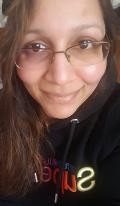
“I thoroughly enjoyed and valued my time as a clinician and am proud to call myself a speech and language therapist and an AHP. We have a lot of transferable skills, and I only truly appreciated the extent of these during the pandemic. I was redeployed to an operational lead role for one of the large-scale vaccination (LSV) sites which opened my eyes to the other job roles in CCS and our corporate services.”
Shagufta Dalal, former Speech and Language Therapist (Read Shagufta's profile here)
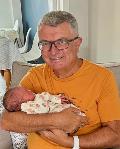
“I took early retirement in 2020, having previously worked as a practice manager for a GP surgery for 14 years, but then realised I wasn’t ready to completely stop working and wanted a new role within the NHS without the long hours I’d previously worked.
“In my current role, my clinician colleagues assess whether specialist equipment is needed to improve the lives of our younger patients with complex needs, and I then order the equipment and monitor its delivery.
“My advice to others is that age is just a number. If you’re looking to retire from a full-time career, there are flexible part-time roles out there and the skills you’ve picked up over the years are a valuable commodity for a new employer.”
Richard Hall, Physiotherapy/Occupational Therapy Admin Support (Read Richard's profile here)
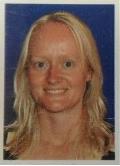
“There’s no such thing as a typical day, every day is different, really varied and busy! There’s usually a mix of clinical work, service development projects or meetings, and some line manager responsibilities.
“The main skills needed to be a speech and language therapist are to be a great problem solver - clinically you use your academic learning to piece together information from different areas to make a diagnosis, deliver therapy and make it fun! Also, in a leadership role, it’s important to be flexible and a good listener.
“My advice for anyone else considering this career is to get as much experience as possible working with children with a range of communication skills and to just go for it, it’s a great career!”
Susie Robertson, Area and Clinical Lead - Fenland and Huntingdon
Speech and Language Therapy (Read Susie's profile here)
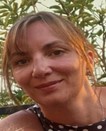 “I was inspired to be a speech and language therapy support practitioner after working as a special needs coordinator. I worked very closely with a speech therapist supporting a child with autism spectrum disorder (ASD) and the knowledge I gained working with this child and supporting his communication made me want to seek out an opportunity to develop specific skills in this area so I could continue to support children’s communication to help them meet the best possible outcomes for the future.”
“I was inspired to be a speech and language therapy support practitioner after working as a special needs coordinator. I worked very closely with a speech therapist supporting a child with autism spectrum disorder (ASD) and the knowledge I gained working with this child and supporting his communication made me want to seek out an opportunity to develop specific skills in this area so I could continue to support children’s communication to help them meet the best possible outcomes for the future.”
Terri Bruce, Speech and Language Therapy Support Practitioner (Read Terri's profile here)
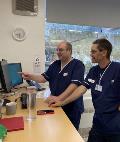
“I’m very proud to have worked in the NHS for what is approaching my fortieth year.
“I was the first NHS qualified paramedic in Cambridge, of which I’m very proud, attending the first course in East Anglia in 1987. The paramedic role was very didactic and protocol-driven at the time. I’d never have believed how far the profession has advanced over the years and that experienced paramedics can now train for advanced clinical roles.
“I’d advise young people who want to be a paramedic to work hard on their GCSE science and to study A-level biology and chemistry. Paramedicine and advanced practice are very much a science-based curriculum.”
Dr Simon Butler, Paramedic and Clinical Site Lead, Covid Vaccination Programme (Read Simon's profile here)
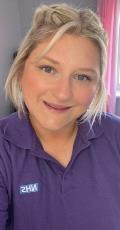
“My top five skills needed to be a paediatric occupational therapist are:
1. Interpersonal and communication skills. The ability to talk, listen, read body language, connect, empathise, and read between the lines all at the same time.
2. Patience. It can sometimes take a child or young person a long time to develop their functional skills, patience is required to give them time to learn and develop and to see change as this can be a long process.
3. Enthusiasm. Being enthusiastic and proactive in your role to learn and develop will make your role more enjoyable.
4. Good teamworking skills. Being able to work as part of a team is an important part of being an OT, it helps to build clinical skills and confidence which is always a benefit for the child or young person you’re working with.
5. Ability to find solutions to problems. The ability to think creatively to problem solve and grade activities so they’re accessible for the child or young person in different environments.”
Jennifer Gill, Advanced Paediatric Occupational Therapist (Read Jennifer's profile here)
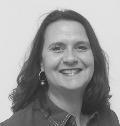 "I was inspired to be a physiotherapist after breaking my leg at the age of 10 and having extensive physiotherapy. Prior to this I'd planned to be an air hostess or vet!
"I was inspired to be a physiotherapist after breaking my leg at the age of 10 and having extensive physiotherapy. Prior to this I'd planned to be an air hostess or vet!
"I've been a physio for 38 years now and work as an advanced practitioner and clinical lead. I have a team of advanced practitioner physiotherapists, a podiatrist and a GP with special interests.
"The highlight of my career so far was being awarded an Honorary Fellowship of the Musculoskeletal Association of Chartered Physiotherapists (MACP) in 2020."
Jayne Davies, Clinical Lead & Advanced Practice Physiotherapist (Read Jayne's profile here)